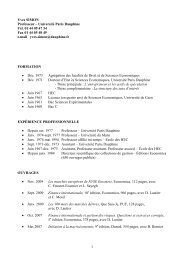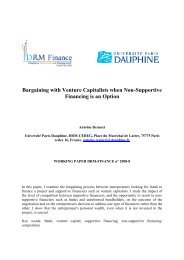Corporate governance and earnings management ... - CEREG
Corporate governance and earnings management ... - CEREG
Corporate governance and earnings management ... - CEREG
Create successful ePaper yourself
Turn your PDF publications into a flip-book with our unique Google optimized e-Paper software.
grounds that the effective usefulness of intangibles is of indefinite duration. It is claimed, <strong>and</strong><br />
rightly so, that no one knows exactly when goodwill value ceases to exist. Hence, it is the<br />
lesser of evils to allow the only objectively determined valuation available (i.e. original cost)<br />
to be shown in the balance sheet”.<br />
How can the very specific situation in France be explained The answer is well-known in<br />
international accounting circles. Whereas in countries like Great Britain <strong>and</strong> the United States,<br />
where the stock exchange played a major role, the need to dissociate taxable income from<br />
“financial” income soon became clear, this was not the case in France, a country where the<br />
capital markets played only a minor role in business financing, at least until the 1960s. This<br />
meant there was no great resistance to tax rules affecting accounting, particularly as in most<br />
cases they led to lower taxable income than “economic” or “financial” accounting rules. It is<br />
true that non-amortization of goodwill was an “anomaly”, but this anomaly had come to be<br />
accepted as a “negative” component of the deal (at least in tax terms), to be taken together<br />
with “positive” components that were beneficial to taxpayers (for instance, the capacity to<br />
deduct start-up, research <strong>and</strong> advertising costs immediately, <strong>and</strong> depreciate many tangible<br />
assets rapidly).<br />
But the growing importance of consolidated financial statements considerably reduced the<br />
influence of taxation as far as goodwill was concerned. Nobes <strong>and</strong> Norton (1996, p. 186-188)<br />
rightly point out “it is in the discussion of tax treatments that the confusion between the<br />
different types of goodwill becomes serious. The vital initial point is that, in all countries,<br />
consolidated financial statements as prepared for financial reporting purposes are irrelevant<br />
for tax purposes … In most countries, corporate income tax is calculated company by<br />
company … Since the consolidated income statement is not directly relevant for tax purposes,<br />
<strong>and</strong> since amortization charges for consolidation goodwill only appear in such statements,<br />
then such charges are not tax deductible …”.<br />
12



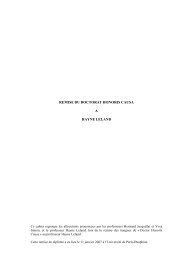
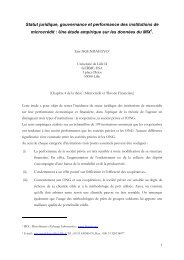
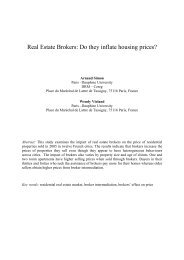
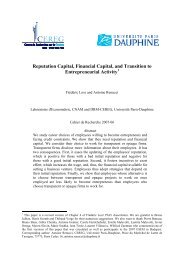

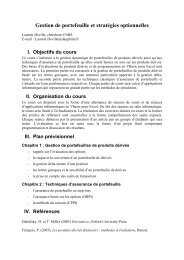
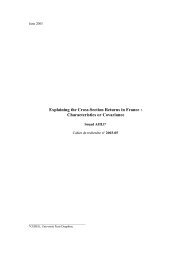
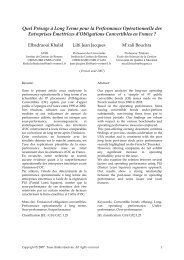

![& 6 ] ^ F ]^ - CEREG - Université Paris-Dauphine](https://img.yumpu.com/33326502/1/184x260/-6-f-cereg-universitac-paris-dauphine.jpg?quality=85)

